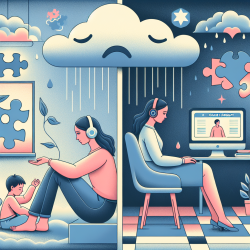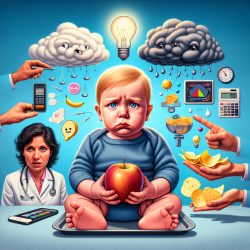Key Findings from the Study
The study examined 188 families over four time points and revealed several critical insights:- Mother and father depression symptoms at the initial time points predicted an increase in the child's internalizing problems 12 months later.
- Child internalizing problems at the third time point predicted increased maternal depression symptoms at the fourth time point.
- Approximately 33-39% of mothers and 22-30% of fathers of autistic youth reported clinically-elevated depression symptoms.
- About one-third (26-31%) of autistic youth had clinically-elevated internalizing mental health problems across the three-year study.
Implementing Research Findings in Practice
To improve outcomes for autistic children, practitioners should consider the following strategies based on the study's findings:- Screen for Parental Depression: Regularly screen parents of autistic children for depression symptoms to identify those at risk early.
- Family-Centered Interventions: Implement family-wide support systems that address both the mental health of parents and autistic children. This could include mindfulness training, psychoeducation on emotion and behavior management, and cognitive behavioral therapy (CBT) for the child.
- Monitor and Support Over Time: Provide ongoing support and monitoring to address the dynamic and reciprocal nature of mental health issues within the family.
Encouraging Further Research
The study highlights the need for further research to explore the genetic and environmental pathways linking parental depression and child internalizing problems. Practitioners are encouraged to:- Participate in longitudinal studies that examine these bidirectional associations in more diverse and larger samples.
- Investigate the role of non-biological parents and single-parent households in these dynamics.
- Explore interventions that can mitigate the genetic predisposition to depression and internalizing problems in autistic youth.
To read the original research paper, please follow this link: Parental Depression Symptoms and Internalizing Mental Health Problems in Autistic Children.










